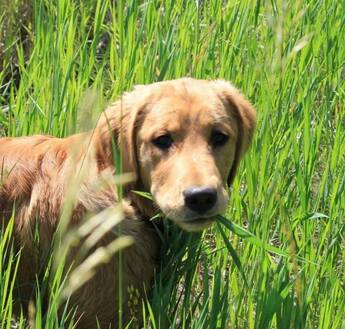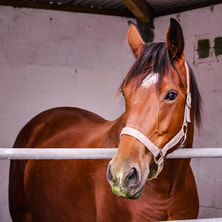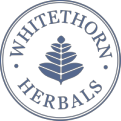ZOOPHARMACOGNOSY

What is Zoopharmacognosy?
Zoopharmacognosy refers to the process by which animals self-select plants, algae's, clays and minerals in the wild in order to restore and maintain health. This innate survival trait allows an animal to actively identify and self-select medicinal plants and has been key to their survival since their inception. Without this ability animals would not have been able to evolve and survive into the wonderful selection of animals that surround us today. As dog and horse owners we can work with this innate survival trait that still remains in our domesticated animals in order to support our dog or horse's emotional and physical health. (Maybe you have seen your dog eat grass or your horse select herbs from the hedgerow?) The official term for domesticated animals self-selecting extracts is called Applied Zoopharmacognosy although in popular media you may see it termed 'free-choice' or 'self-selection'.
Zoopharmacognosy refers to the process by which animals self-select plants, algae's, clays and minerals in the wild in order to restore and maintain health. This innate survival trait allows an animal to actively identify and self-select medicinal plants and has been key to their survival since their inception. Without this ability animals would not have been able to evolve and survive into the wonderful selection of animals that surround us today. As dog and horse owners we can work with this innate survival trait that still remains in our domesticated animals in order to support our dog or horse's emotional and physical health. (Maybe you have seen your dog eat grass or your horse select herbs from the hedgerow?) The official term for domesticated animals self-selecting extracts is called Applied Zoopharmacognosy although in popular media you may see it termed 'free-choice' or 'self-selection'.
|
How can it help my horse/dog?
You can learn how to offer effectively to your horse/dog at one of our Live online or onsite workshops. This course will give participants a broad and thorough introduction to Applied Zoopharmacognosy, its methodology and benefits, as well as laying a theoretical and practical foundation of knowledge for the attendee. This will allow attendees to commence offering plant extracts to dogs/horses in their care for such physical issues as infection, wounds, strains, hormonal imbalance, and emotional issues such as anxiety, fear, aggression etc. Click here for Canine Workshops or click here for Equine Workshops. Click on the YouTube link to learn more about self-selection with horses (3mins) |
|
 Polly worked with this method to resolve trauma
Polly worked with this method to resolve trauma
Benefits of the self-selection approach:
- Addresses the unique needs of your dog's/horse's physiological and emotional make up
- Works with physical and emotional issues. Read about Pippi in our blog who selected successfully for fear of scissors and grooming
- Less intrusive than most conventional methods - Herbs work gently within the body and the dog/ horse can self dose. However, it is very important to be aware of contraindications which are covered in our Workshop program. See 'Dog's' case study in our blog who was cured of Pannus which is normally considered incurable
- This method removes time consuming and sometimes costly guesswork. Your dog/horse can tell you accurately what it does or does not need
- Enables a deeper level of connection and communication with your dog/horse
- Has a balancing influence working with your animal's innate desire to heal
- Does not suppress symptoms - sending them inwards to surface at a later time
- Creates a stronger Immune System - this process works with your animal's body wisdom as oppose to attacking
How does it work?
There are varying theories on how it works. However, one thing we do know for sure is that the taste bud receptors of the unhealthy animal become more receptive to the taste of the medicinal compounds that it needs to get better. For example, whilst normally an animal would find that Wormwood tastes bitter, when the animal has worms it's taste receptors alter to finding Wormwood pleasant. When the animal has has sufficient for it's condition the taste bud receptors revert back to finding Wormwood bitter. The same also applies to the nasal receptors and finding essential oils pleasant or unpleasant according to the needs of the body. To facilitate identifying plants horses have (as do all mammals other than humans) a secondary olfactory organ called the Vomeronasal Organ. The VNO is directly linked to the brain (via the Olfactory Bulb) and send signals to influence the sympathetic and para-sympathetic nervous system which then have real physiological effects on the body. The VNO is also linked to the limbic system within brain. This collection of structures within the brain influences the emotional state of the horse as well as being responsible for forming and storing memories.
There are varying theories on how it works. However, one thing we do know for sure is that the taste bud receptors of the unhealthy animal become more receptive to the taste of the medicinal compounds that it needs to get better. For example, whilst normally an animal would find that Wormwood tastes bitter, when the animal has worms it's taste receptors alter to finding Wormwood pleasant. When the animal has has sufficient for it's condition the taste bud receptors revert back to finding Wormwood bitter. The same also applies to the nasal receptors and finding essential oils pleasant or unpleasant according to the needs of the body. To facilitate identifying plants horses have (as do all mammals other than humans) a secondary olfactory organ called the Vomeronasal Organ. The VNO is directly linked to the brain (via the Olfactory Bulb) and send signals to influence the sympathetic and para-sympathetic nervous system which then have real physiological effects on the body. The VNO is also linked to the limbic system within brain. This collection of structures within the brain influences the emotional state of the horse as well as being responsible for forming and storing memories.
|
The word Zoopharmacognosy was coined by Dr.Eloy Rodriguez - a biochemist at Cornell University, NY. The word is derived from ancient Greek- 'zoo' (animal), 'pharmaco' (remedy) and 'gnosy' (knowing).
Click on YouTube link to listen to a 15min Tedx talk by the leader in the field of Zoopharmacognosy, Prof Michael Huffman of Kyoto University |
|
